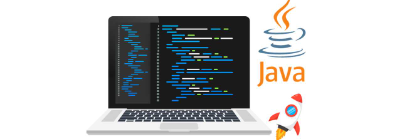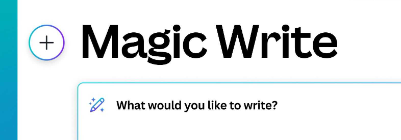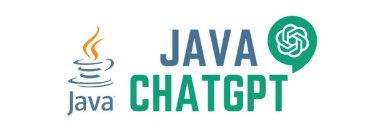New next-day stock delivery will come at a cost: Know how T+0 settlement will impact mutual fund and stock investors
From January 31, 2025, for the top 500 stocks in India, investors will start getting an option to have T+0 settlement in systematic manner. Moreover, stockbrokers have been permitted to charge differential brokerage for consumers opting for T+1 and T+0 settlement of shares. Securities and Exchange Board of India (SEBI) said that this decision was taken up based on the positive feedback received from the industry on the trial run of T+0 settlement. Experts opine that this new bold move holds significant importance for Indian stock market traders and to some extent investors also.Read below to find out how the T+0 settlement for shares can help you and in which situations it may prove useful
India slowly moves to T+0 from T+1 stock settlement and shows the world its technological power
Stock settlement is a technical term for credit of purchased shares in your demat account. For example: Under the existing T+1 settlement, if you purchase a share on Monday, it will take one more working day i.e. Tuesday to settle this transaction and share will be credited to your demat account on Wednesday. So, in this situation you are locked with the shares for one day (Tuesday) as you usually can’t sell any shares unless it exists on your demat account.Saravanan P, professor of finance and accounting at IIM Tiruchirappalli says it was not long ago when India gradually shifted to T+1 from T+3 system of stock settlement. “India is ready to show the world the power of its technological progress. If implementing the T+1 system was challenging, then implementing T+0 is near impossible. So, by accomplishing this near impossible task India will show the world how technologically advanced the country is.”
Let us understand how the roll out of this optional T+0 settlement work. SEBI in a circular dated December 10, 2024, said: “Optional T+0 settlement cycle shall be made available to top 500 scrips in terms of market capitalization as on December 31, 2024. The scrips shall be made available for trading and settlement starting with scrips at bottom 100 companies out of the aforesaid 500 companies and gradually include the next bottom 100 companies every month till top 500 companies are available for trading in optional T+0 settlement cycle.”
Which stock market participants will benefit from T+0 and who can skip it
Since both the T+0 and T+1 will continue and brokers will be allowed to charge differential pricing for both of them, the question arises which stock market participant should choose what. We have asked various experts and here’s what they said: T+0 will benefit stock market traders
According to Vishranth Suresh, co-founder, AssetPlus, a Chennai based mutual fund distribution platform, “T+0 will definitely help stock market traders as they can churn out stocks without having to wait for the respective shares to get credited in their bank account. For example: suppose a trader places an order for some shares and then decides to take delivery of the share due to any reason. Now he won’t be able to sell these shares until the settlement (T+1) happens. In this scenario a trader opting for T+0 can immediately sell the shares the very next day of buying it, potentially allowing him to take advantage of any price fluctuations in the short term.”Saravanan says, “This will certainly help investors who are basically with an intra-day trading or short-term trading strategy.”
High frequency trading mutual funds will benefit from T+0
Suresh says, “Some mutual funds in India have a high churn ratio and they actively trade in stocks to generate alpha. So, in this case T+0 will help these mutual funds. However, it is quite likely that AMCs might take a wait and watch approach to understand the trends and benefits more clearly before taking a call on implementation. The T+0 feature is still in the testing stage by SEBI”T+0 will mean higher cost of trading in shares
Experts say the cost of executing a trade under T+0 mechanism will be higher than T+1, although it's not a big hike. “If today T+1 trades get settled with Rs 20 brokerage per order then in T+0 it may be Rs 30,” said an industry insider who did not wish to be named.“T+0 will increase the cost of executing a trade through stockbrokers as they have to make a lot of backend changes, even the RTAs too. It is likely that this additional cost will be passed onto consumers hence the brokerage cost for T+0 will increase. I expect that the brokerage cost might increase by Rs.10 to 20 per order under T+0" Suresh said.
“However, the success of this idea is a function of how much differential brokerage the broking houses are going to charge for facilitating T+0 and T+1 settlement cycles,” says Saravanan.
Shrey Jain, Founder & CEO, SAS Online – a deep discount broker, says: "While it increases efficiency and reduces costs of funding, it also means the brokers have to be prepared for swift movement of securities and funds. Gradual and optional implementation of T+0 settlement has put all market participants on a learning curve. This should ensure that settlement is a smooth experience for all stakeholders.
Like any other service, pricing is decided by the demand for and supply of that service. Clients seeking T+0 settlement for quick receipt of funds or securities, and more trading opportunities may not object to differentiated pricing. Traders benefit in terms of lower counterparty risk and higher liquidity. Since the settlement time stands reduced, the traders can use their capital more efficiently. However, a few strategies such as BTST– buy today and sell tomorrow using margin will become a thing of the past."
T+0 will not result in faster redemption timeline for mutual funds
Suresh says a mutual fund usually honours redemption requests from its cash and cash equivalents. “So, moving to a T+0 settlement will not impact the redemption timelines and make it faster. This is expected to continue as per present timelines,” he says.
Moving to T+0 may minimise instances of short delivery
Devam Sardana, Business Head, Lemonn, says, "When India moved from T+2 settlement to T+1 settlement, we achieved a 50% reduction in defect rate (typically measured as DVP or ratio of Delivery vs Payment) which reduced from 0.7-0.8% to 0.3-0.4% which is expected to further reduce with T+0. This will also make sure that early pay in is critical for funds and securities thereby reducing the defect rate further by a significant number and making sure that short pay in for securities is minimized."Moving to T+0 might not benefit stock market investors
According to Saravanan, "Generally investors invest for the long term so a delay of one or two days in crediting of shares in the demat account won’t really matter much for investors.”Jathin Kaithavalappil, Assistant Vice President, Choice Broking, says: "Investors might find it difficult to settle for a T+0 settlement as the benefits of a faster execution are cancelled out by the cost of the higher brokerage. Even though T+0 increases liquidity, the growing transaction fees risk putting off cost-conscious investors from fully utilizing it. Depending on trading volumes and market dynamics, higher brokerage charges from T+0 settlement may offset the improved free float for brokers. Profitability gains may not materialize fully if investor participation is muted because of the added cost."
This story originally appeared on: India Times - Author:Faqs of Insurances




























































